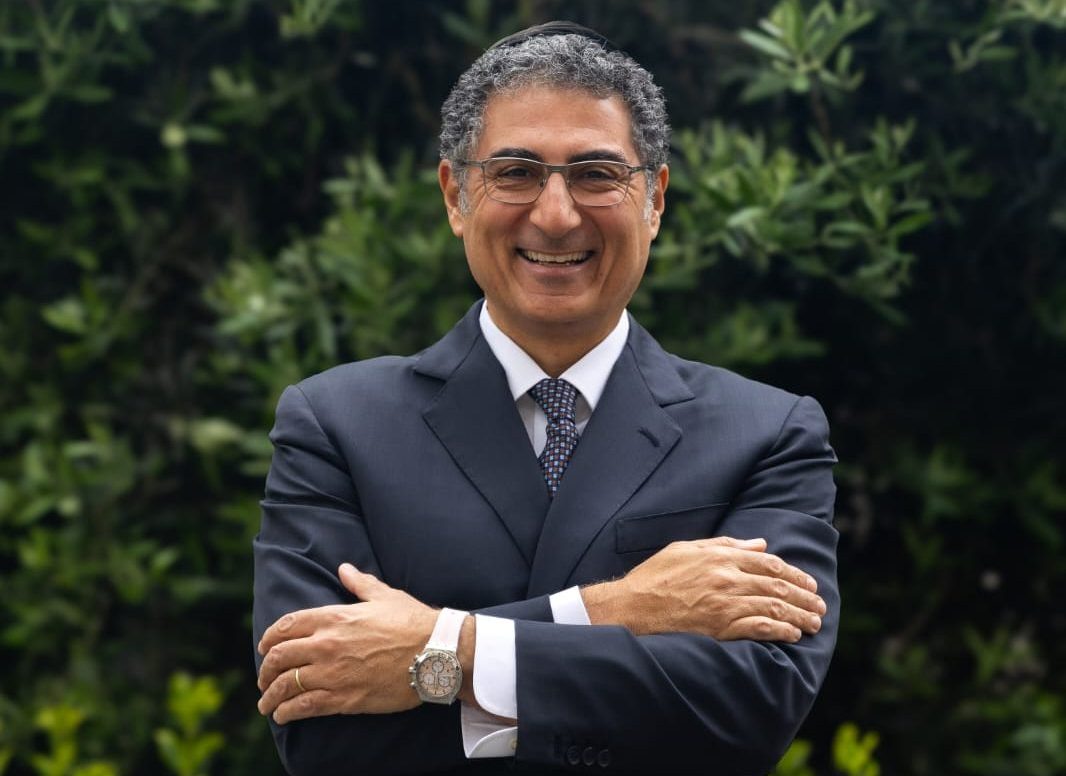ROME – Victor Fadlun re-elected at the helm of the Jewish Community

Victor Fadlun has officially been appointed president of Rome’s Jewish Community. In the recent elections, his list, “Dor Va Dor,” received 58.42% of the vote, surpassing “Lev Echad,” led by Joseph Di Porto, which received 28.36%, and “Ha Bait,” led by Noemi Di Segni, which received 13.22%. During his second mandate, Fadlun, an entrepreneur, will lead an all “Dor Va Dor” executive. “We want to work with everyone, hoping to create opportunities for trust and project sharing,” Fadlun explained to Pagine Ebraiche. “Voters gave us a clear mandate to carry on with our program in an election marked by unprecedented voter turnout. Voter affluence was 35%, which signals a strong return of attention to community issues.”
The executive includes Alex Luzon, Deputy Vice-President in charge of institutional relations; Daniela Debach, Vice-President in charge of Educational Policies I; Carola Funaro, Vice-President and councilor for Memory, President’s Office Coordination and magazine and information hub Shalom.
Isaac Tesciuba is the councilor for Worship and Heritage, Ruben Benigno is councilor for Educational Policies II, Piero Bonfiglioli is councilor for Chesed, Giacomo Moscati is councilor for Culture, and David Pavoncello is councilor for Institutions, Organizational Efficiency, and Innovation.
During the meeting, several councilors outside the executive were deliberated: Emilia Di Veroli (Reception and Social Inclusion), Huani Mimun (Kashrut), David Mayer Naman (Relations with Israel), Milena Pavoncello (Educational Policies III), Angelo Sed (Taxes), and Davide Tesciuba (Youth and Worship).
Fadlun said the first pillar of this new mandate is “implementing Chesed like never before.” The Hebrew word indicates “kindness or love between people” and can have the more general meaning of “charity.” The idea is to intervene on a social level through a multidisciplinary crisis unit with resources. “We need professionals to coordinate the volunteers, and their activity should be monitored by the Council, formed by volunteers.” Fadlun said that Chesed “means helping vulnerable people in difficulty by offering concrete solutions to develop new skills and roles.” From this perspective, “resources cannot be the small Tzedakah (charity), which is repeated and not guaranteed.”
According to Fadlun, it is also necessary to make the most of the Jewish Community’s resources and avoid duplicates. The current structure lacks adequate infrastructure. Currently, each institution has its own council, but to work well, we should centralize.”
The second pillar of Fadlun’s plan concerns education and youth. He announced that work will soon begin to improve, expand, and structure our schools. This is not a real estate project, but rather a reorganization supported by foundations abroad — a project for the future.” Another goal is to create a Jewish center in southern Rome in a building that currently hosts a retirement home. Because of that, he explained, the conversion process will be slow. “That place is a hidden gem. We want to turn it into a meeting place for different generations with sports, recreational, and health services.” Another cornerstone will be “defending Israel’s rights, which coincides with fighting antisemitism, which is often masqueraded as anti-Zionism today.” To accomplish this, Fadlun said, “we should work with the authorities behind the scenes because this greatly enhances the community’s reputation.” A Jewish community that “no not scream but raises its voice, and in doing so accomplishes positive and concrete results.”
